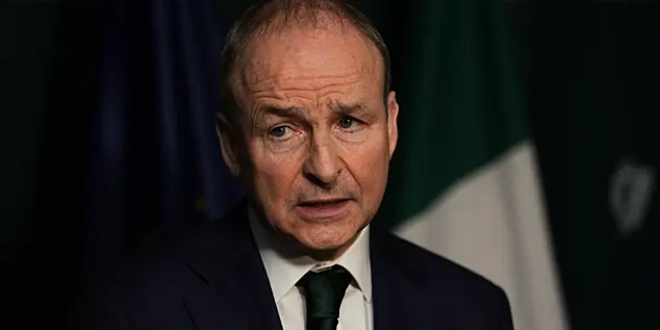Taoiseach Micheál Martin has urged a composed and coordinated response from the European Union as tensions mount over trade relations with the United States. Speaking at the Ógra Fianna Fáil National Youth Conference in Roscommon, Martin acknowledged the concern many young professionals feel, especially those employed in sectors directly affected by the evolving tariff situation.
The EU has recently decided to delay any retaliatory trade measures after U.S. President Donald Trump temporarily paused a series of new tariffs targeting European imports. The Taoiseach stressed that despite these unpredictable developments, the Irish government remains committed to safeguarding jobs, economic stability, and ongoing infrastructure investment.
He assured the audience that Ireland is actively working with its European partners to navigate the uncertainty, emphasizing that engagement with both the US administration and multinational companies operating in Ireland would remain a priority. Describing the current climate as turbulent, Martin reaffirmed Ireland’s economic model and its resilience.
As part of the broader EU debate over how to respond to potential US trade actions, Ireland’s Minister for Finance Paschal Donohoe reaffirmed the government’s opposition to Digital Sales Taxes (DSTs) targeting American tech giants. Speaking during an EU finance ministers’ meeting in Warsaw, Donohoe warned that such taxes could have a damaging effect on both the Irish and wider European economies.
He advocated for a united European strategy that balances the need to respond to the US without inflicting additional harm on domestic industries. Donohoe added that the 90-day suspension announced by the US provides a vital opportunity to reach a diplomatic resolution. Upcoming talks in Washington between European Trade Commissioner Maroš Šefčovič and US officials are expected to focus on resolving the tariff dispute and repairing transatlantic trade relations.
The debate over DSTs continues to divide EU member states. While some, including Denmark, Poland, and Portugal, have already implemented such taxes on digital advertising revenue, Ireland remains opposed to their adoption at an EU-wide level. European Commission President Ursula von der Leyen recently suggested the bloc could consider applying a tariff-like digital levy to US tech companies, but Ireland has consistently resisted this approach.
Meanwhile, EU finance ministers also discussed funding increased defence capabilities, following recent approval of the €800 billion ReArm Europe initiative. This includes raising €150 billion in private investment to be supported by the EU budget. Donohoe expressed confidence that Europe can meet its defence funding targets without undermining economic stability.
Adding to the conversation, Martin Shanahan, former IDA Ireland chief and current Global Head of Industry at Grant Thornton, cautioned against implementing coercive economic tools like DSTs as retaliation. Speaking on RTÉ’s The Business, he noted that while some EU members support stricter regulation and taxation of US tech firms, using such measures would signal a deepening conflict.
Shanahan emphasized the importance of de-escalation, warning that Ireland’s economy could suffer significantly if relations with the US deteriorate further. He concluded that both sides must prioritize dialogue and resolution over confrontation to avoid broader economic fallout.
 The Daily Star Ireland
The Daily Star Ireland

